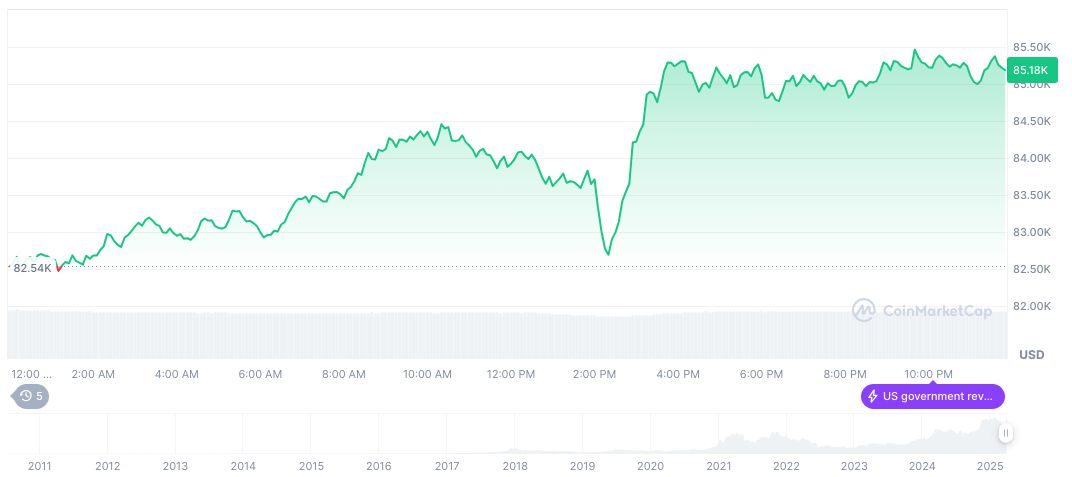







































Trump Announces New Comprehensive Tariffs on Imported Goods
 DJT
DJT
 TRUMP
TRUMP
 READ
READ
 DON
DON
 TRUMP2024
TRUMP2024
- Trump's tariff announcement impacts global and crypto markets significantly.
- U.S. stocks lose $505 billion after tariffs news.
- Bitcoin falls by 3% on tariff-related news.
On April 3rd, former U.S. President Donald Trump announced a 10% tariff on all imported goods as part of his trade policy.
The tariffs, aimed at reducing foreign reliance, have reverberated through financial and crypto markets, causing notable unrest and price fluctuations.
Trump's Tariffs Cause $505 Billion Market Downturn
The tariff initiative by Trump, described as a step towards reviving domestic production, promises economic transformation. In partnership with Commerce Secretary Howard Lutnick, Trump seeks to leverage these measures for better trade negotiations. Immediate implications include a significant impact on financial markets. The U.S. stock market faced a downturn, losing $505 billion in market capitalization. Furthermore, the crypto markets exhibit volatility, with Bitcoin experiencing a drop. Key reactions came from market analysts, with many expressing concerns about potential inflation. Howard Lutnick supported the tariffs as beneficial for national economic sovereignty, emphasizing their role in recalibrating global trade relations. As Donald Trump put it, this is "Liberation Day; it will revitalize the U.S. economy by reducing reliance on foreign imports."
Amid the market changes, Bitcoin, trading at $85,999, sustains significant market caps. According to CoinMarketCap, it holds a $1.71 trillion market cap with a 60.81% dominance. Despite a recent 1.22% price uptick, the 90-day data reflects an 11.92% decline.
Bitcoin Volatility Amid New Tariff Policies
Did you know? Tariffs have historically been used as a tool to protect domestic industries, but they can also lead to trade wars and retaliatory measures.
Insights from the Coincu research team suggest that enforcing these tariffs could lead to long-term market volatility. Examining past policies, the research indicates possible technological shifts in trade resulting from adaptations to these economic changes.

Insights from the Coincu research team suggest that enforcing these tariffs could lead to long-term market volatility. Examining past policies, the research indicates possible technological shifts in trade resulting from adaptations to these economic changes.
Read original article on coincu.com
